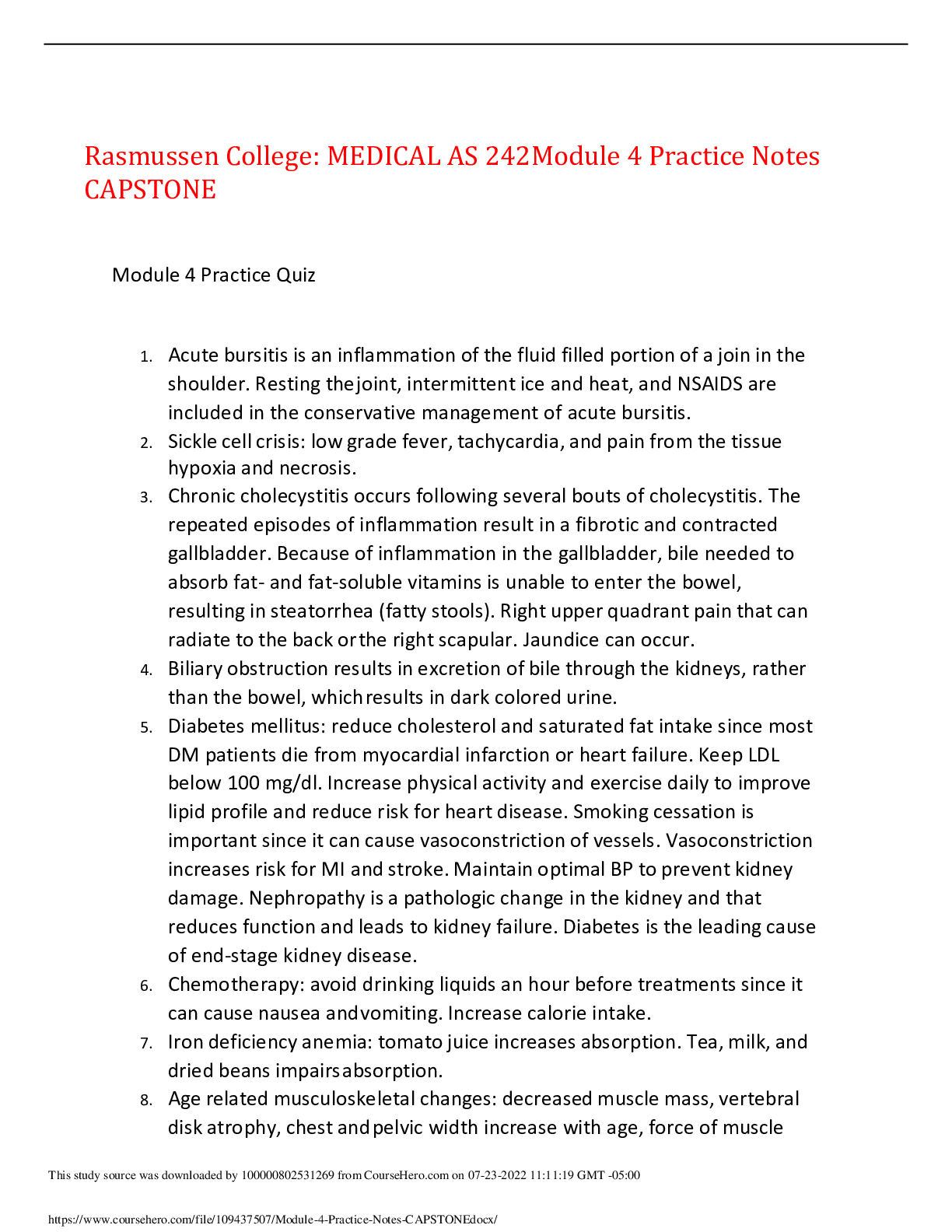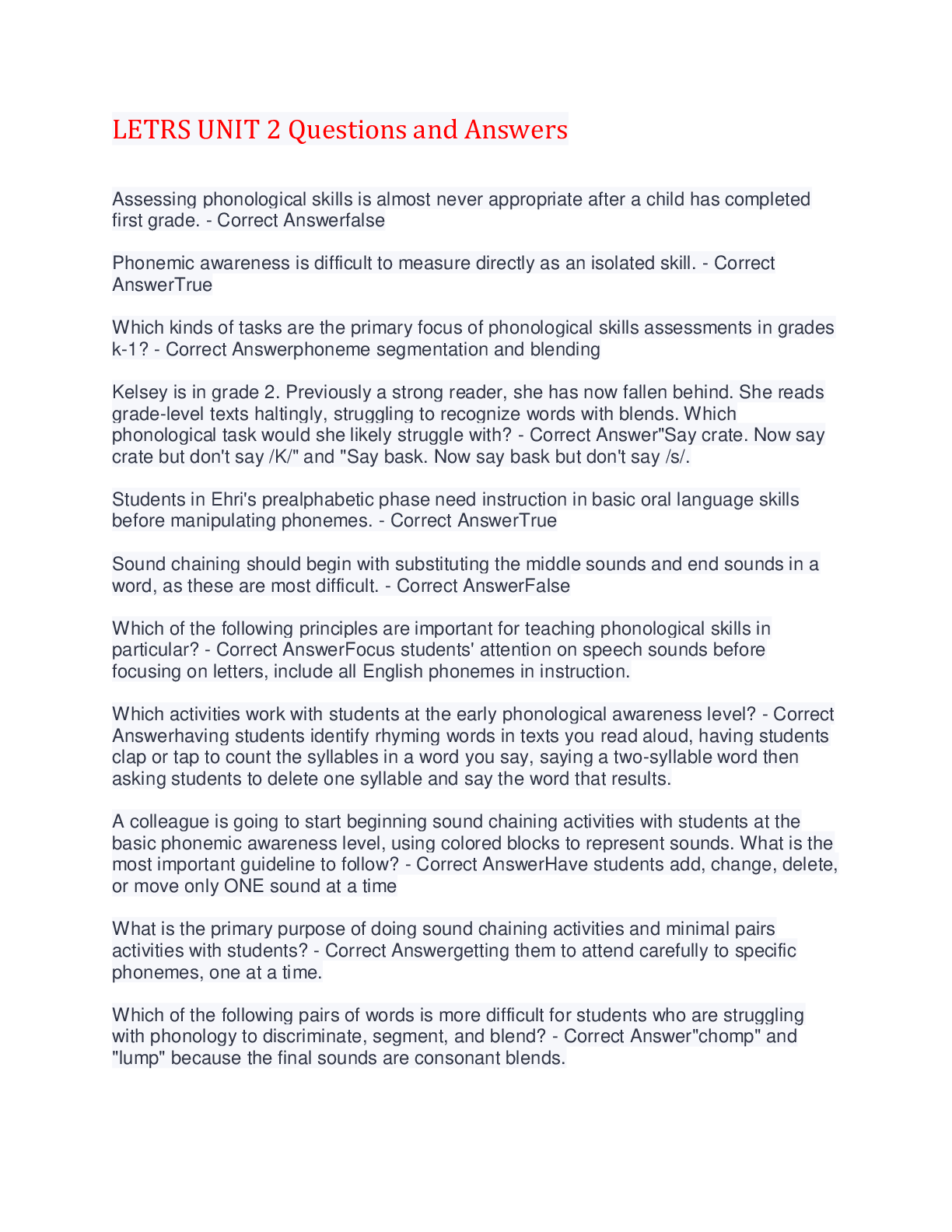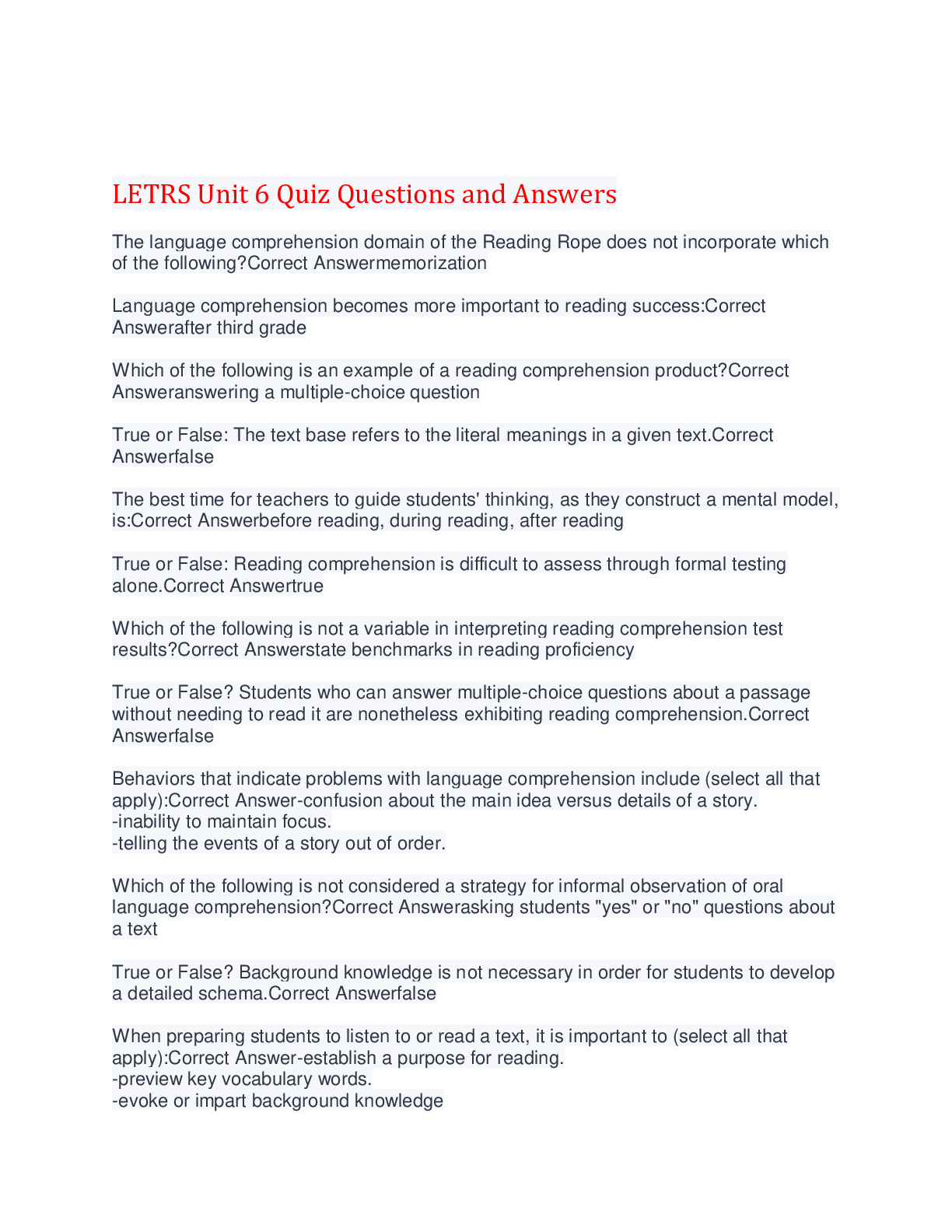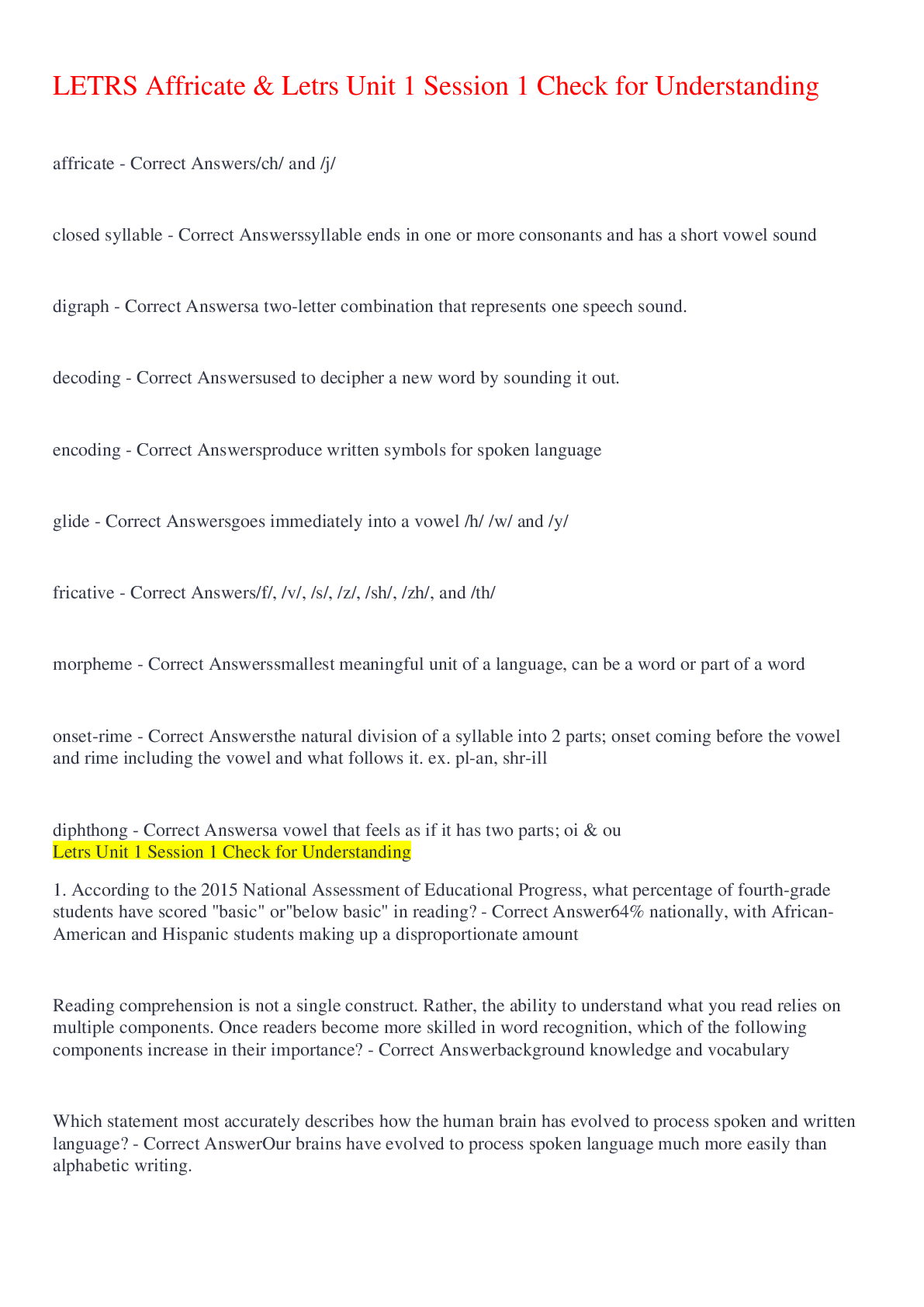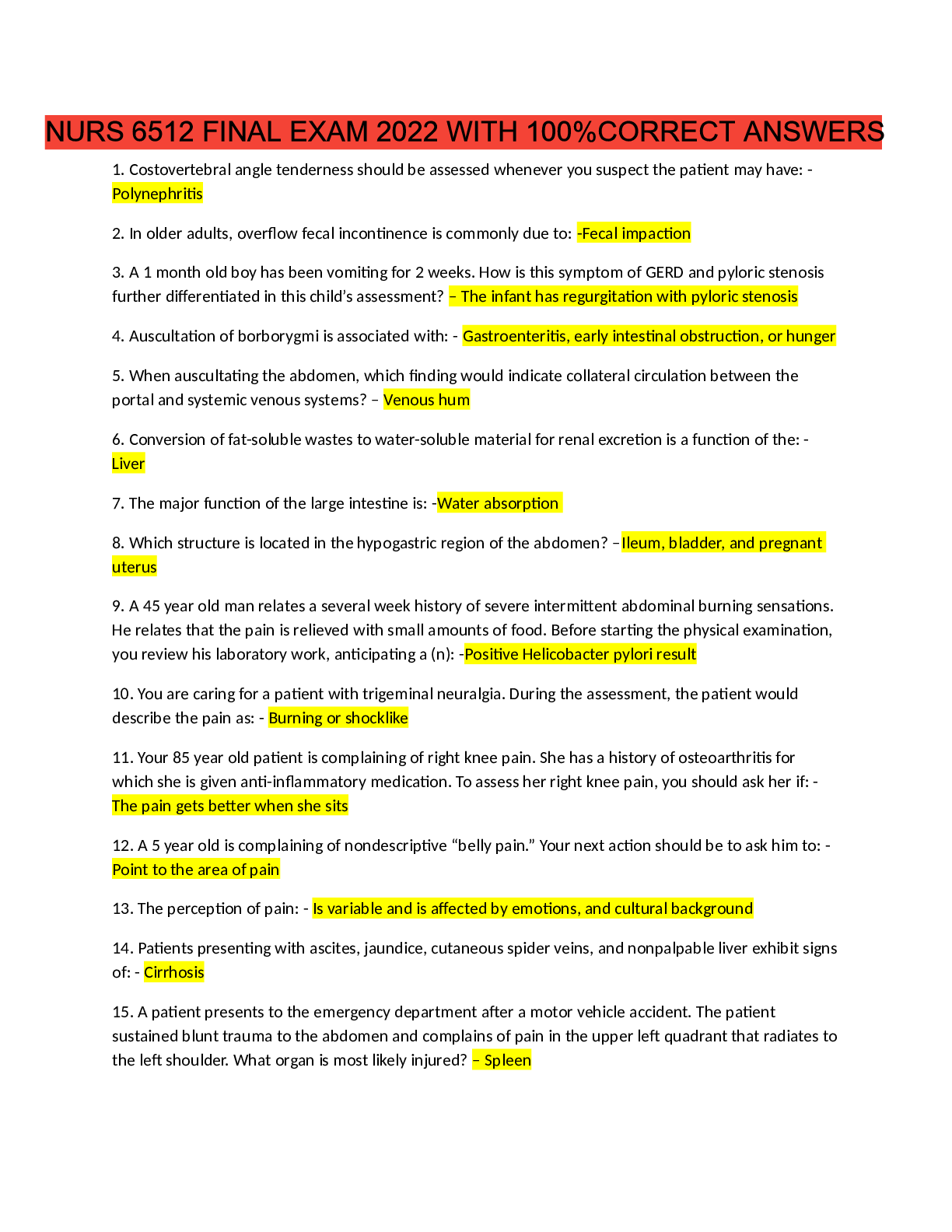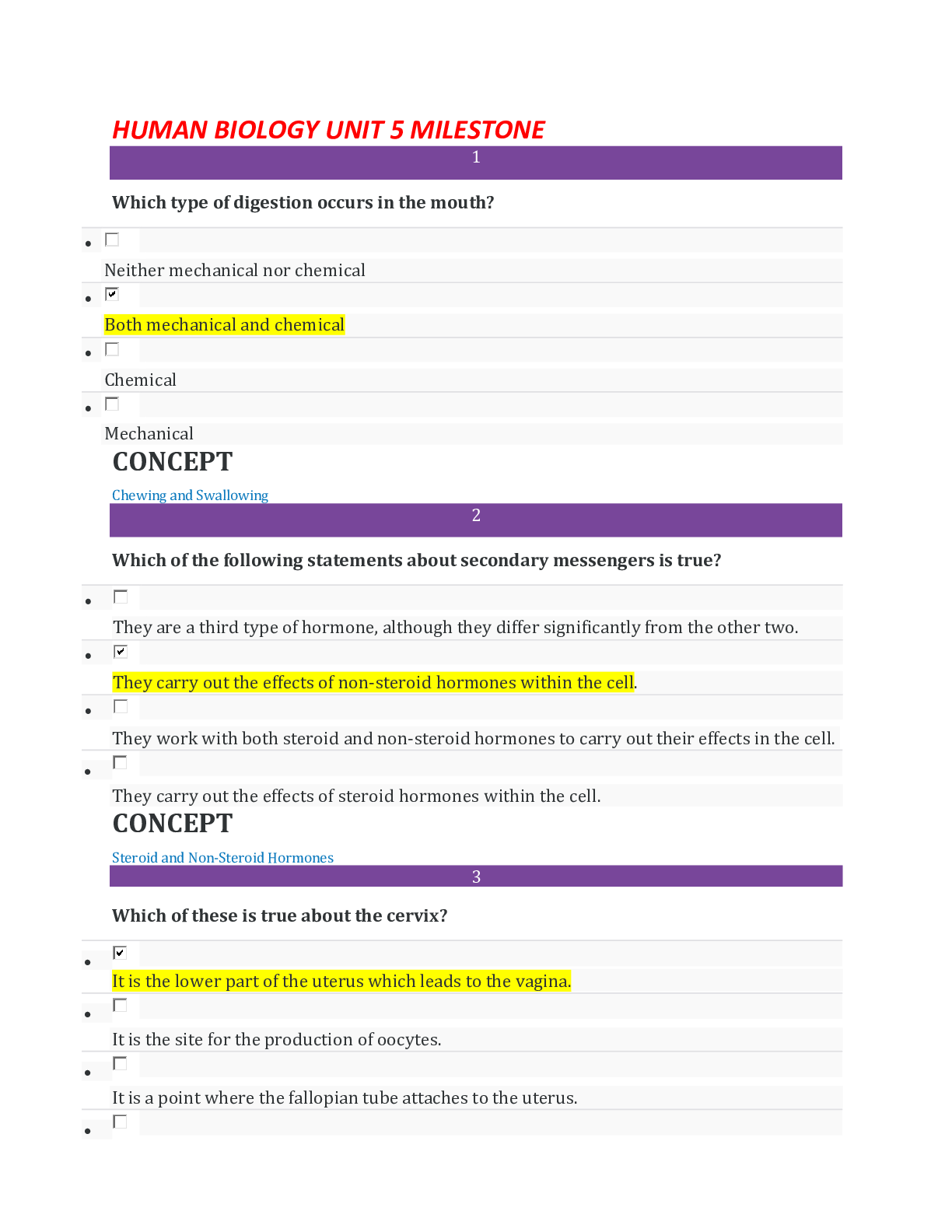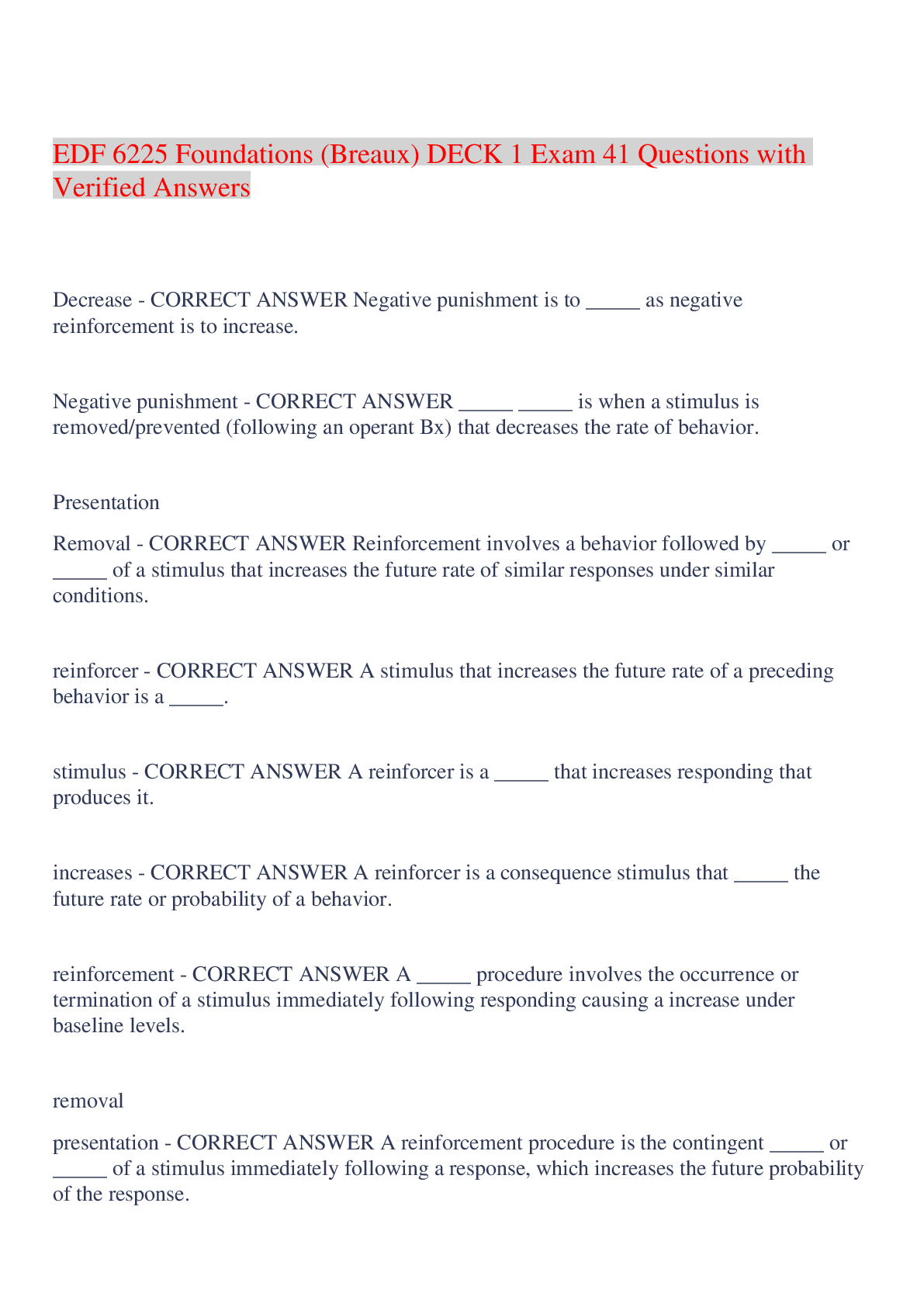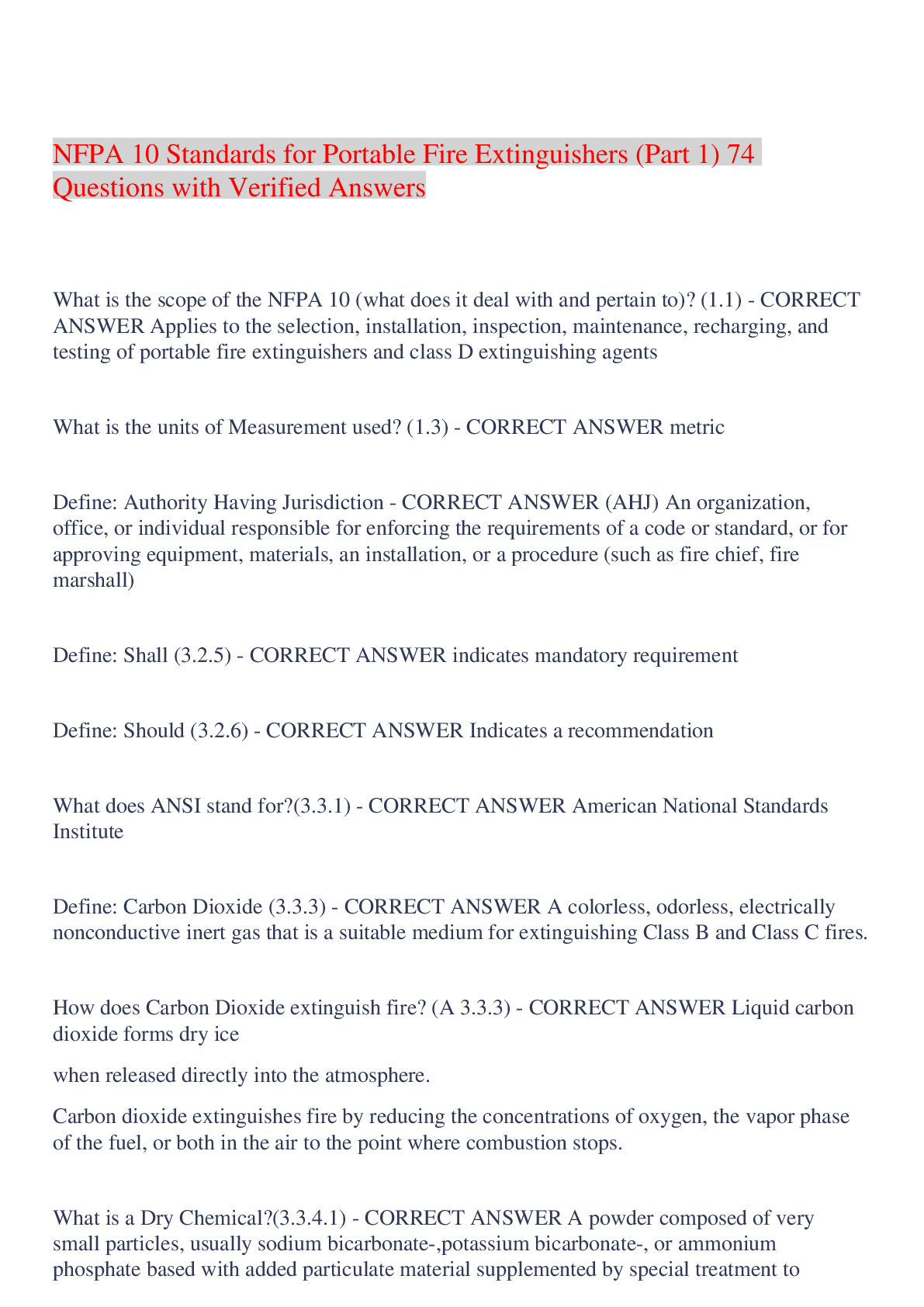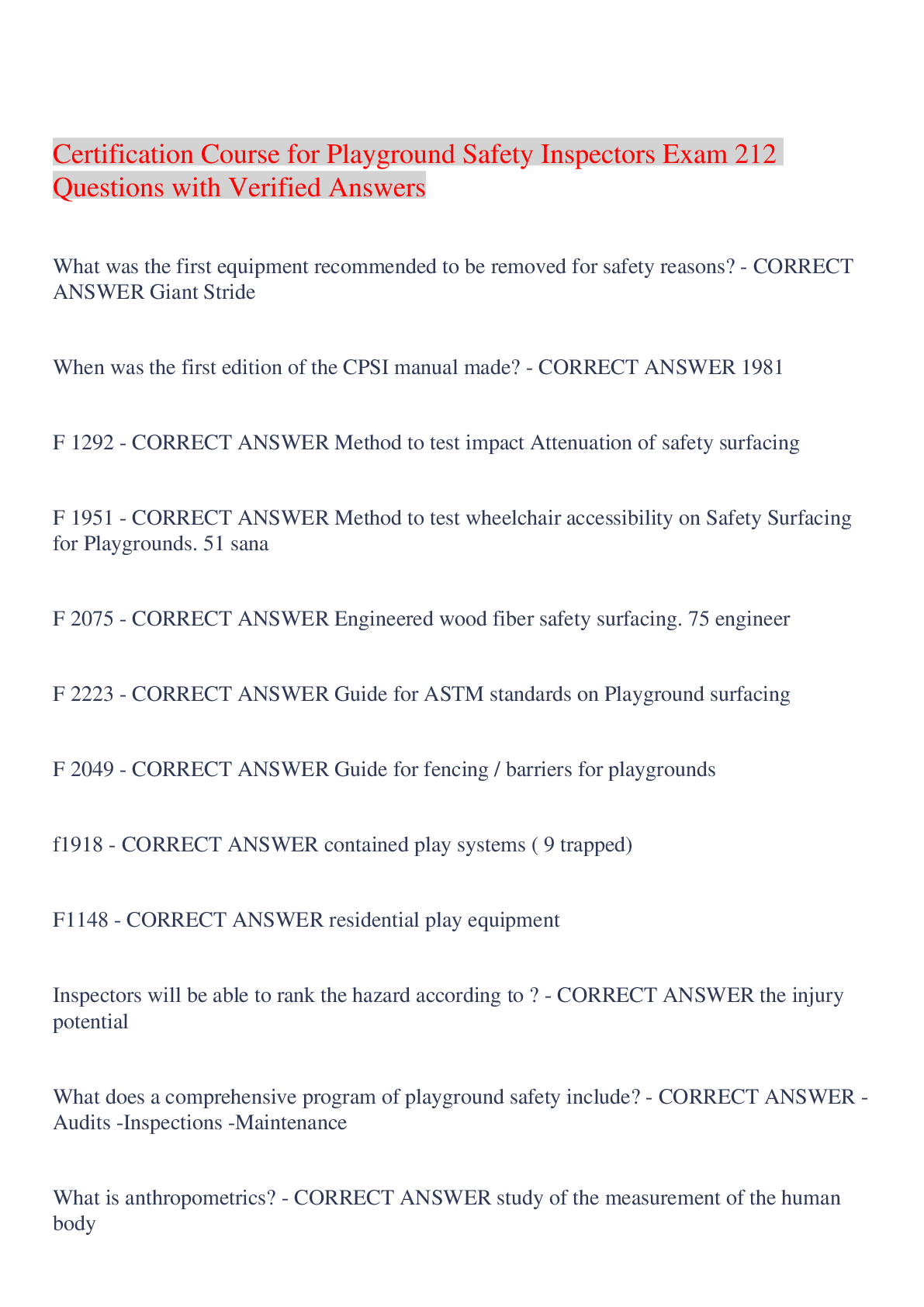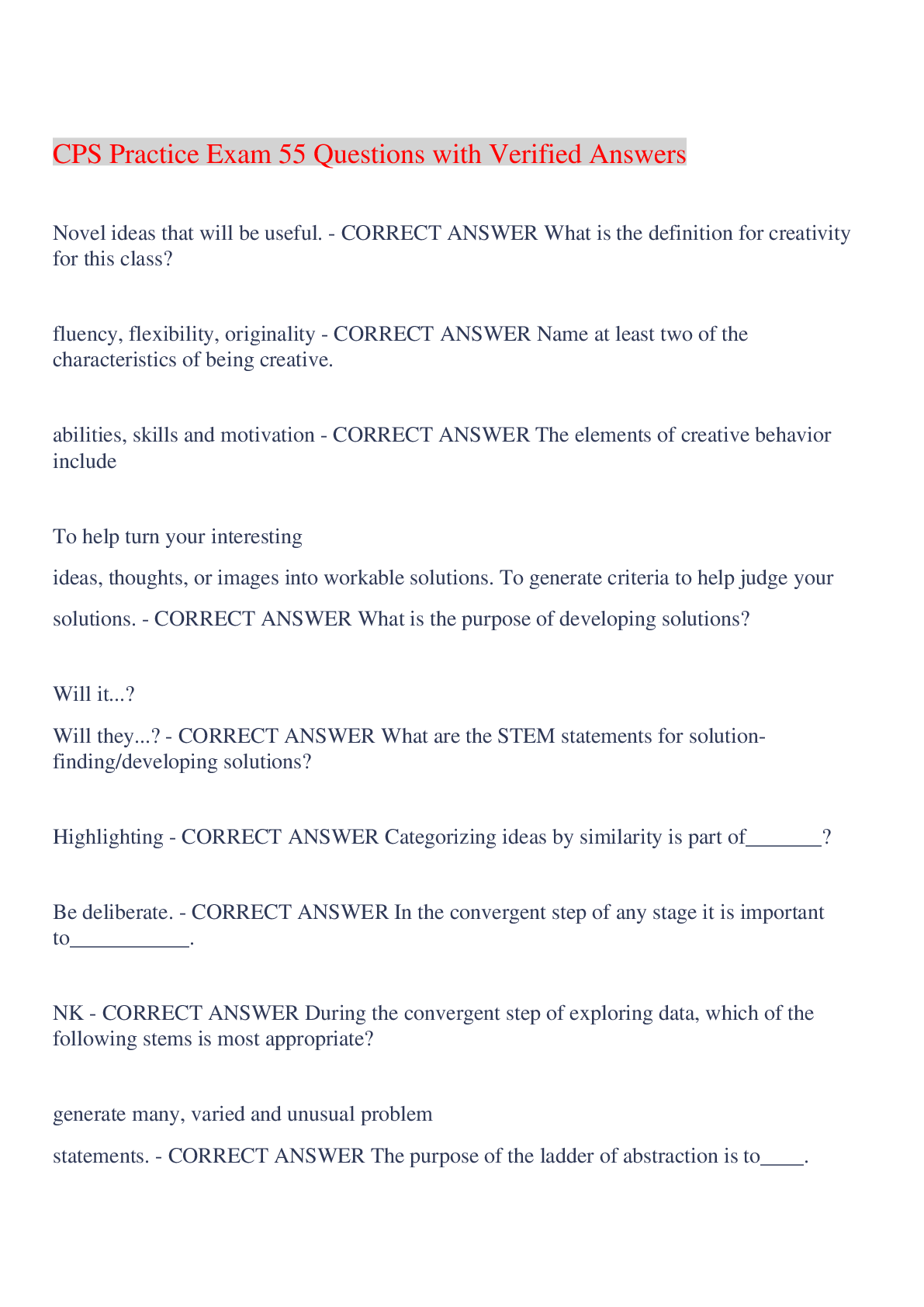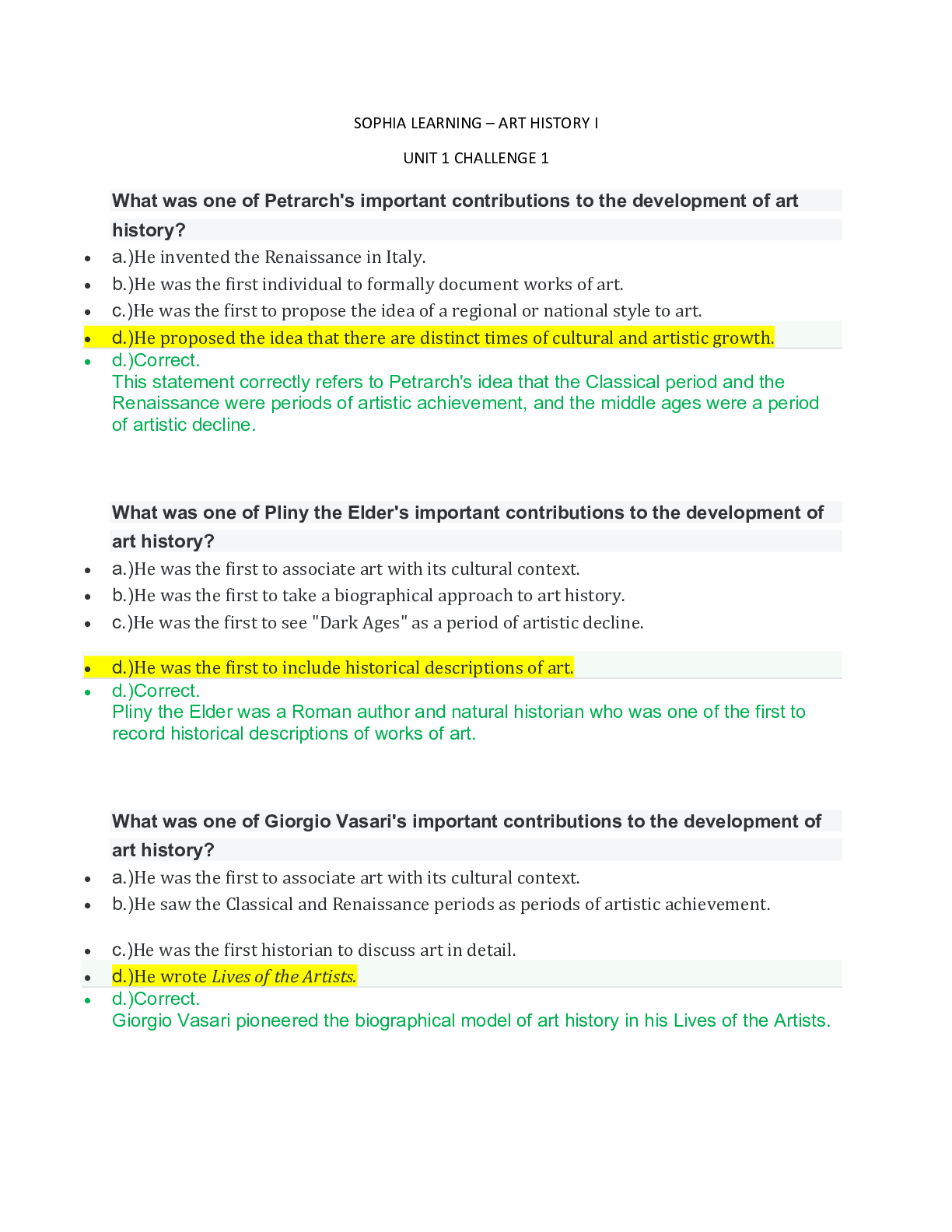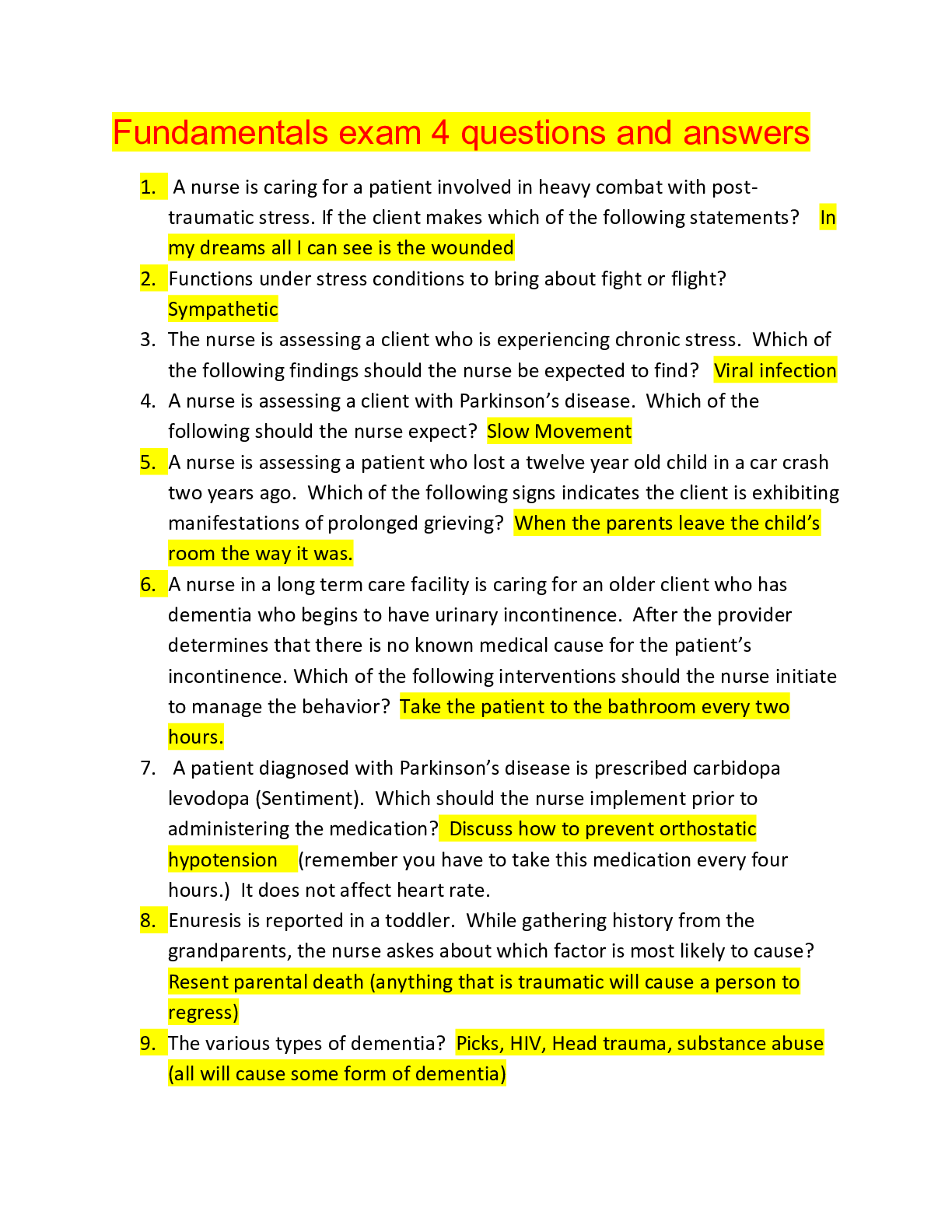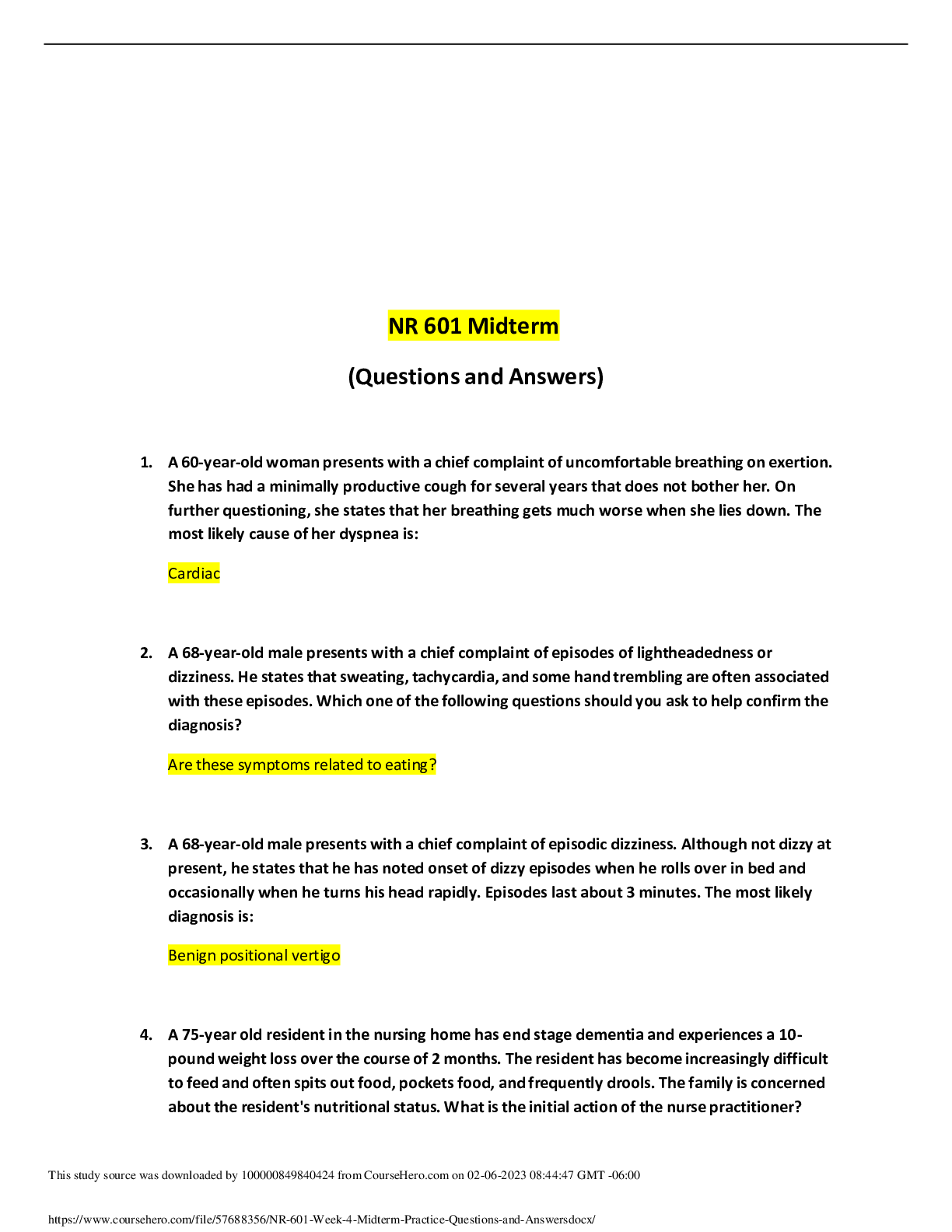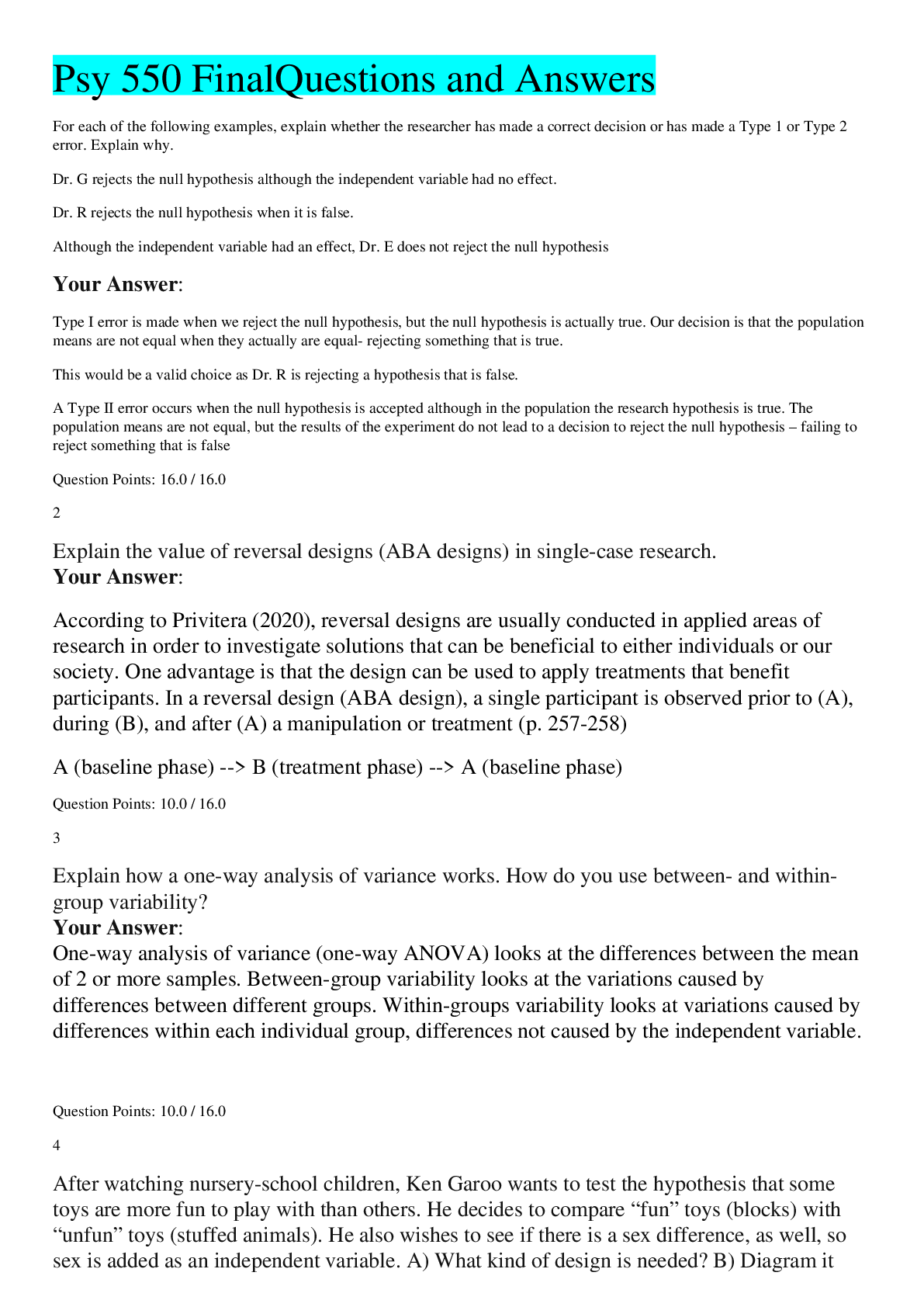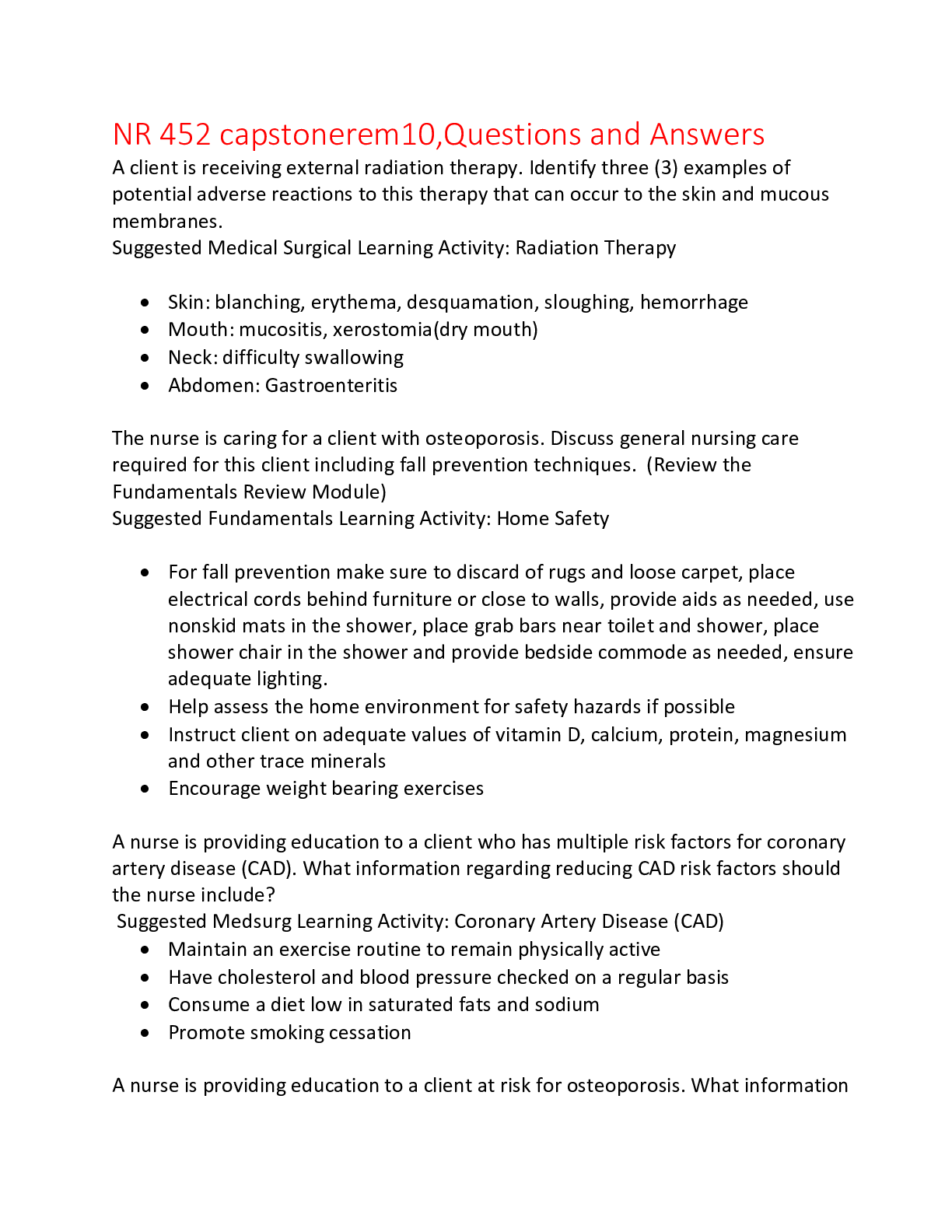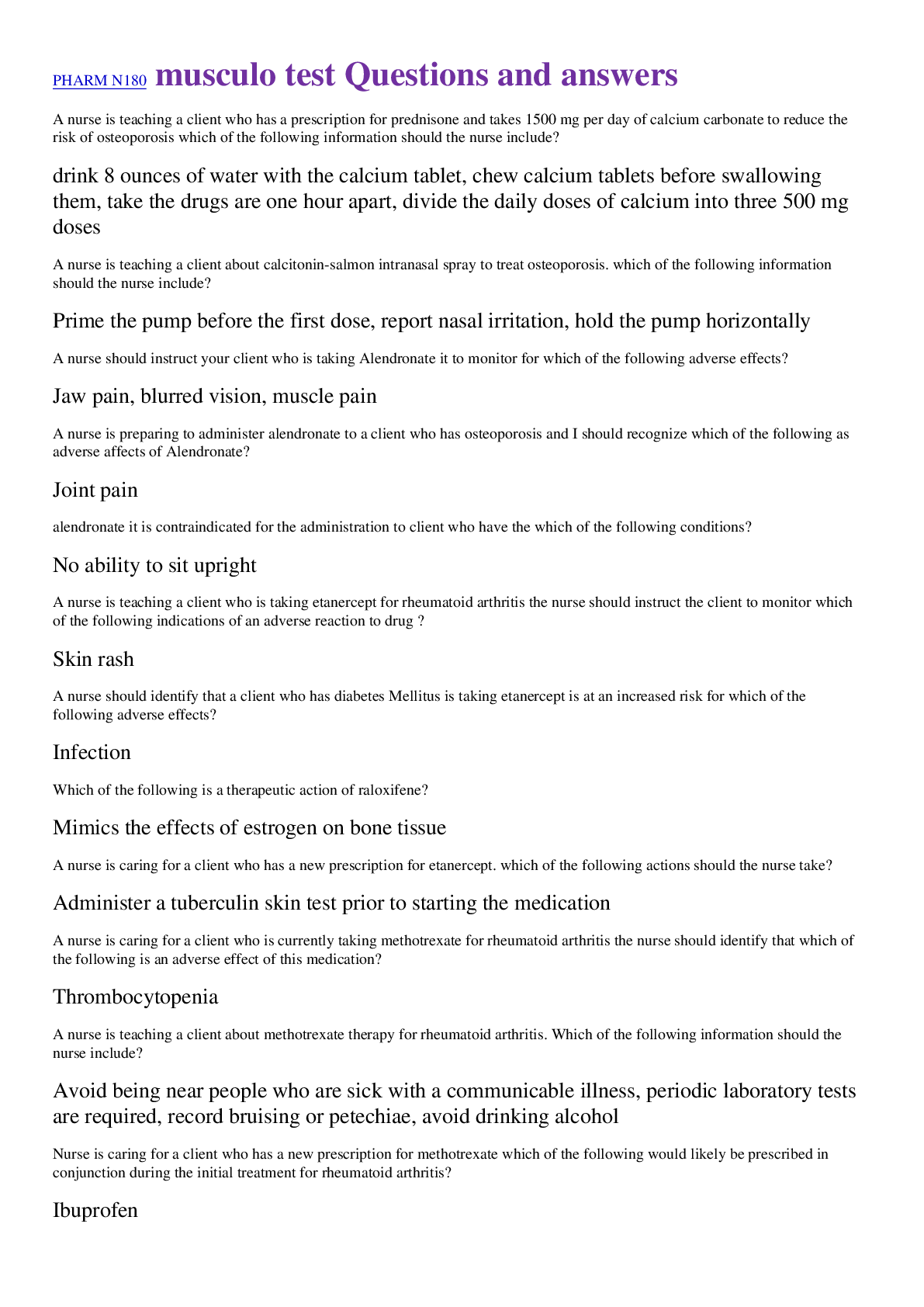Anthropology > EXAM > Ancient Greek Quiz 1 Notes Questions and Answers,100% CORRECT (All)
Ancient Greek Quiz 1 Notes Questions and Answers,100% CORRECT
Document Content and Description Below
Ancient Greek Quiz 1 Notes Questions and Answers • What is the technical word for the study of knowledge? - Epistemology • What is the technical word for the study of being, i.e., of what ther... e is or exists? - Ontology - What is the technical name for the Milesian philosophers' view that there is only one archê, and it is something physical? (two words) - Monism • What is the principle of parsimony? - If something can explain a lot with a little, it's more powerful - What is the technical word for the study of the structure of reality? - Metaphysics - What is the technical word for the study of all things relating to the divine? - Theology • What are the two basic modal concepts that we discussed in class? Give an example for each one (this need not be the example given in class). - Necessity - Must: cannot not be (God) - Must not: Cannot be (square circle) • Contingency: - Can be (capable of being) - Can not be (capable of not being) (Humans) • What is the principle of charity? - Giving the best interpretation that the philosopher would have meant - What is strict monism? - Only one thing exists • What is the aspectual interpretation of Parmenides' poem? - One and the many are different aspects of the same world; both exist. Some things aren't as real as others (you vs your shadow) • What is the modal interpretation of Parmenides' poem? - There is necessary being and contingent being; both exist. Necessary being one and unchanging (2+2=4); contingent being many and mutable (Katz is standing- can't know). • What is an archê? - What everything is made of - What is the archê for Thales? - Water - Give two reasons (from fragments, of course) why Thales might have chosen this archê: ▪ All life depends on water ▪ seeds (the source of life) are moist • Why did Thales think that the Magnesian stone has soul? - Because iron is attracted to them • What did Anaximander say is the archê? Give the Greek term—make sure that it is spelled correctly. - Apeiron • Describe Anaximander's archê. - Not an element but something all things are made of. Indefinite, infinite, eternal. • Give two reasons (from fragments) why Anaximander might have chosen this archê: - 105: The elements are opposites and cancel each other out so if it was an element the other wouldn't exist - 106: Having infinite matter is the only way generation and destruction would not fail • How does Anaximander explain thunder and lightning? - 130: Thunder= wind shut up in clouds and forcibly bursts out; Lightning=rift against the cloud - Briefly explain Anaximander's theory about human origins. - 135: Man grew inside of fish and then burst out already self-sustaining • Why did he believe this (i.e., what was his evidence)? - 134: Other creatures are self- supporting before man is - What did Anaximenes say is the archê? - Air • Give two reasons (from fragments) why Anaximenes might have chosen this archê: - 141: All come into boing from air - 140: Air changes when it is thicker vs. when it is finer • According to Anaximenes, what are the two processes by means of which the elements are transformed into one another? (E.g., the process by means of which water becomes earth, and the process by means of which air becomes fire.) - Rarefaction and condensation • How does Anaximenes demonstrate that these two processes are in fact the causes of the transformation of the elements? - Man can create both hot and cold by the way he uses his lips through compressing and relaxing air • In what sense is Anaximenes's archê divine? - Air is like god in that it is measureless and infinite (144). Heavenly bodies are from the exhalation of earth (149) • When Xenophanes claims that "all is one", is this an epistemological claim or a metaphysical claim? - Metaphysical • Explain the point Xenophanes is making when he says that were it not for honey, we'd all think figs are sweetest. - We don't know what we don't know • When Xenophanes claims that "even if one chanced to say the complete truth, yet one knows it not", is this an epistemological claim or a metaphysical claim? - Epistemological • Give two pieces of evidence cited by Xenophanes in support of his view that the earth and sea are in a continual cycle of replacement (i.e., that earth is replaced by sea and then sea is replaced by earth, ad infinitum)? - There are shells found in the mountains and impressions of fish and seaweed in the earth [Show More]
Last updated: 1 year ago
Preview 1 out of 5 pages
Instant download

Buy this document to get the full access instantly
Instant Download Access after purchase
Add to cartInstant download
Reviews( 0 )
Document information
Connected school, study & course
About the document
Uploaded On
Nov 14, 2021
Number of pages
5
Written in
Additional information
This document has been written for:
Uploaded
Nov 14, 2021
Downloads
0
Views
103

